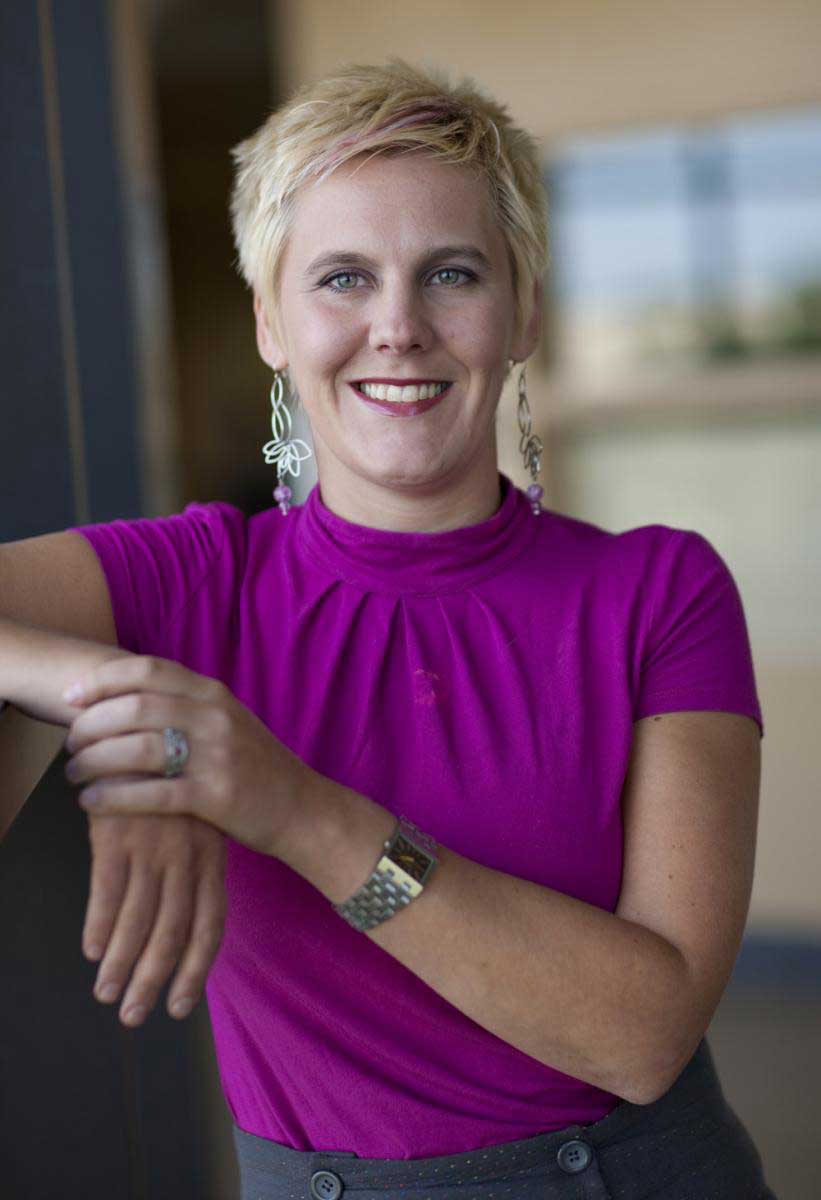When the School of Graduate Studies emerged 25 years ago, it offered a single master's degree in education. Since then, it has emerged as a centre for graduate studies in the arts, health sciences, humanities, sciences and social sciences.
"All of our programs are growing steadily as the U of L evolves as a research institution with world-renowned faculty members," says Dr. Jo-Anne Fiske, dean of the school.
She explains that the University master's degree offerings are constantly expanding as a result. This fall, for instance, the U of L will welcome its first students into the Master of Fine Arts (MFA) and Master of Music

Gabrielle Weasel Head, Cathy Aspen and Doug Checkley
In its early years, the master's program offered local students the opportunity to earn graduate degrees. Today, the program is made up of 13 per cent international students and attracts applicants from all over the world. It also draws bright, engaged students committed to succeeding.
"Students are earning their own recognition in national competitions for scholarships and fellowships," Fiske says.
Gabrielle Weasel Head is one such student. One year into a master's program in Native American Studies, she recently earned the Joseph-Armand Bombardier Canada Graduate Scholarship from the Social Sciences and Humanities Research Council (SSHRC) for her thesis proposal.
Her research will examine how Aboriginal people in southern Alberta experience and perceive homelessness.
"Lethbridge is traditional Blackfoot territory. There are a lot of homeless Blackfoot individuals living in this relatively small city of 85,000. The numbers are quite staggering," Weasel Head explains.
Her sense is that cultural ties to the land can help explain why some homeless Blackfoot people remain in the area, despite a dearth of housing options. Weasel Head will conduct her fieldwork at a homeless shelter in Lethbridge, where she will interview patrons, not service providers.
"A lot of research, I find, is done from an outside lens. I'm trying to look at homelessness through the eyes of those experiencing it."

Melanie Meier Brayton
She says the $17,500 SSHRC grant will go a long way towards her tuition and living expenses. It will also help her with research costs, which will include gifts like warm socks and meals for research participants.
Eventually, Weasel Head says she'd like to do a PhD, but she's also considering working for a social services agency that focuses on Aboriginal services.
A PhD is also the goal of new grad Cathy Aspen, who completed a Master of Science in management (specializing in marketing) this May. For now, she's putting her social marketing prowess to work at Alberta Environment as an outreach and planning assistant.
While academia is her end goal, Aspen says it's important to work for a while in order to gain hands-on experience.
"To conduct research and teach is the ultimate objective, but there will be a couple of detours along the way," Aspen says. "Once you get into the classroom, it helps you be more credible with students if you have that experience."
Aspen chose to do her graduate studies after earning a Bachelor of Management degree from the U of L.
"I got to know the faculty really well when I was doing my undergraduate degree and found them to be really supportive," she says.
The program was also a great alternative to an MBA route, which wasn't for her, and it offered a cohort program, which also appealed to her.
"You make some really great friendships; it's nice to have people around who understand exactly what you're going through," she adds.
For Doug Checkley, a full-time high school physics teacher, the part-time master's of education program, with a thesis option, was an ideal route. "Everyone thinks I'm crazy, but I wanted to have the experience of writing my thesis because I'm thinking of doing my PhD down the road," he says.
While Checkley's colleagues enjoy two months of summer relaxation, he's working hard on thesis drafts. But, he says the work is fun and wholly related to his day job.
"I'm looking at physics education. I'm analyzing why students are choosing to take physics in smaller numbers than the other sciences," he says.
So far, his fieldwork supports his suspicion that students wrongly view physics as too difficult. This tendency is ultimately a bad thing for society at large, as many of the professions in the sciences utilize physics.
"You can't have engineers without physics."
While students like Checkley are compelled by a passion for their discipline, graduate school is a personal and academic challenge. In fact, the demands on graduate students can be overwhelming at times.
That's where Melanie Meier Brayton comes in. As the new graduate studies awards supervisor, she's charged with the tremendous task of helping students find and apply for awards, scholarships and grants they're often not aware of.
"Especially with the first year master's students, they don't know where to look. A lot of times, I think many of them don't think there are funds available," she says.
A U of L alumna who formerly worked at a private college, Meier Brayton is glad to be back at her alma mater.
"I've always wanted to be back in the university environment," she says. "I believe in education, and I've always wanted to help people better themselves with education."
During the year, Meier Brayton will be holding workshops on applying for external and internal awards, and will be providing information for students on the School of Graduate Studies website.
Visit www.uleth.ca/graduatestudies for more information.
